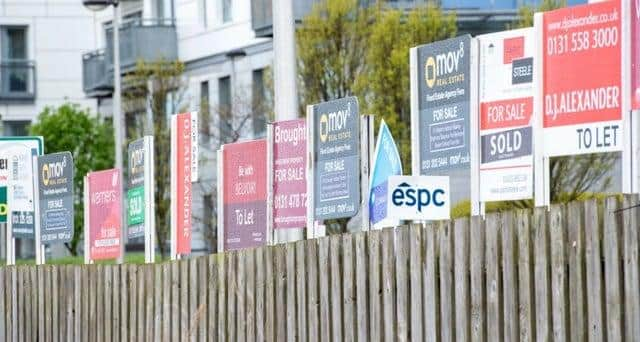Average price of UK property hits record high as interest in rural areas surge


UK average property prices rose by up by 1.6 per cent on a monthly basis, according to the figures from Halifax, taking annual growth to 5.2 per cent - its strongest level since late 2016, with the average price of a property tipping over £245,000 for the first time on record.
The report is published as communities in the Highlands and islands warned that they are being priced out of their local area amid growing demand for rural homes in the wake of the pandemic.
Advertisement
Hide AdAdvertisement
Hide AdThe data showed that in the latest quarter from June to August, house prices were 1.3 per cent higher than in the preceding three months.
According to recent data from HMRC, residential transactions in July 2020 totalled 70,710 – up by 14.5 per cent from June, as the market continued to recover from the lockdown period. Meanwhile, mortgage approvals returned to pre lockdown levels.
Property experts said that the prices rises in some areas of the country were “unsustainable”.
Jonathan Hopper, chief executive of Garrington Property Finders, which has its Scottish headquarters in Edinburgh, said: “In places the market is shifting from the frenetic to the frothy.
“Outwardly the data looks almost universally positive. However in some areas, such stiff competition is pushing up prices at a rate which is clearly unsustainable. But that energy and the resulting momentum on prices is pushing the market ever more out of kilter with the wider economy. While buying a home is purchase unlike any other, and buyers’ motivations are multi-layered, the booming market cannot defy economic reality for long.”
He added: “Rural and coastal homes are proving especially popular, with estate agents even reporting bidding wars among would-be buyers.”
In an open letter from a group including crofters, development officers and Gaelic campaigners, islanders warned of an “economic clearance” in the rural communities.
They said that 40 per cent of housing stock on both Tiree in the Inner Hebrides and West Harris in the Western Isles were holiday homes and that, combined with a rise in the number of people across the UK looking to relocate to the Highlands and Islands, was pushing prices higher.
Advertisement
Hide AdAdvertisement
Hide AdRussell Galley, managing director of Halifax, said: “A surge in market activity has driven up house prices through the post-lockdown summer period, fuelled by the release of pent-up demand, a strong desire amongst some buyers to move to bigger properties, and of course the temporary cut to stamp duty.”
However, he warned that as the financial effects of lockdown and the coronavirus pandemic begin to take hold as the UK Government furlough scheme comes to an end, prices could fall.
He said: “Notwithstanding the various positive factors supporting the market in the short-term, it remains highly unlikely that this level of price inflation will be sustained. The macroeconomic picture in the UK should become clearer over the next few months as various Government support measures come to an end, and the true scale of the impact of the pandemic on the labour market becomes apparent.
“Rising house prices contrast with the adverse impact of the pandemic on household earnings and with most economic commentators believing that unemployment will continue to rise, we do expect greater downward pressure on house prices in the medium-term.”